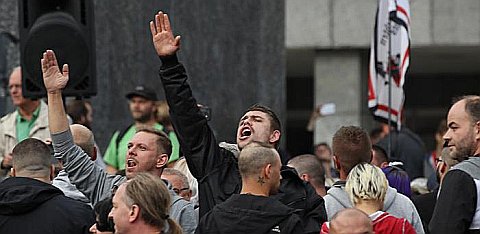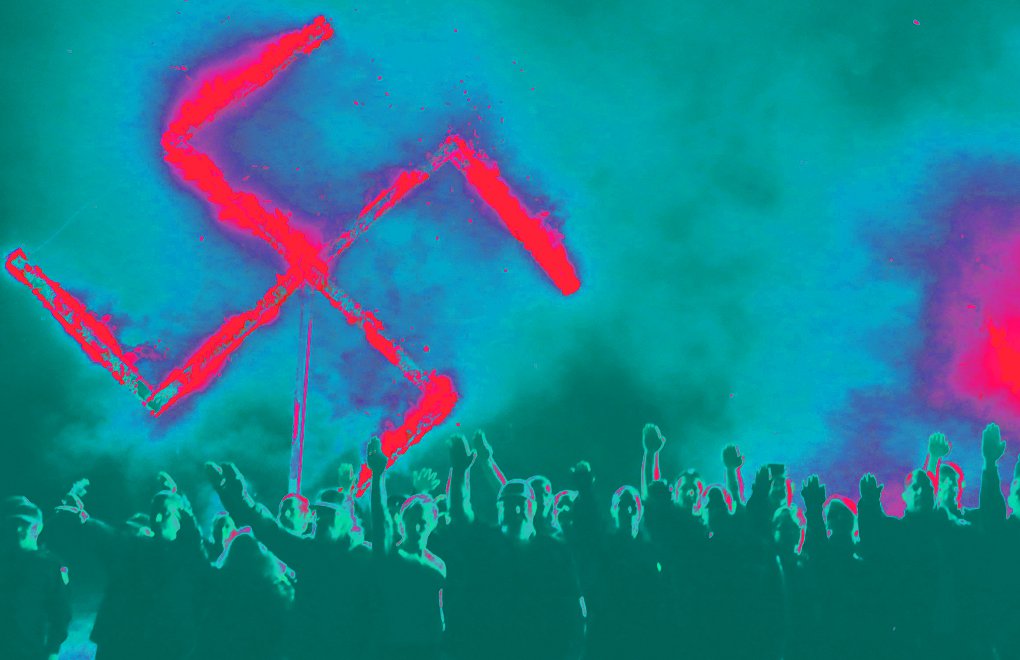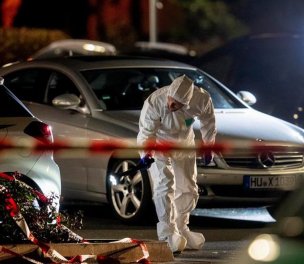* Image: Pixabay
Click to read the article in Turkish
On February 19, a far-right extremist launched an armed attack against two shisha bars in Hanau, Germany, claiming the lives of 11 people, including the suspect himself. Five citizens of Turkey also lost their lives in the incident.
With this recent attack, the specter of Nazism has once again become a burning issue in the country.
It is indeed a burning issue, especially when we consider the recently increasing number of far-right protests and demonstrations in Germany, as it was especially the case in Chemnitz in 2018. All these figures constantly bring us face to face with the concept of Neo-Nazism.
Elisabeth Kimmerle, a journalist working on discrimination at Germany-based Tageszeitung (TAZ) newspaper, defines the rise in far-right protests as shocking. She says that people are equally shocked and outraged.
'Migrants do not feel safe anymore'
Kimmerle especially emphasizes the following points:
"Because this attack is not the first racist attack in Germany, the ongoing racist and far-right violence is gradually escalating in this country.
"The people of Germany originating from Turkey and other countries do no longer feel safe here.
"Following the NSU [Nationalist Socialist Underground] terror, the state of Germany promised to protect people and to clear far-right terror. However, it has not taken adequate precautions to protect its own citizens.
"That is why people now say 'Enough is enough'.
"The rise of right extremism in Germany did not come out of nowhere. Since 2017, a right populist party has been sitting at the Federal Parliament.
'Far-right groups are getting organized'
"For instance, while a new far-right group is coming up each passing day, the public and the media are still discussing the 'dangers of left extremism.'
"The danger posed by right extremist groups is not taken seriously enough, the fears of people who are not white Germans are not taken seriously enough.
"Law enforcement authorities should focus on clearing the organization of right extremist groups and struggling against them."
Nazi salute resurrected with Chemnitz

In the far-right protest demonstrations in Chemnitz, Saxony in autumn 2018, we saw that forbidden Nazi salute was seen again.
A citizen of Germany was stabbed to death in a conflict that erupted between different groups. Two young people from Syria and Iraq were detained in relation with this incident.
After that, right extremist hooligan groups set a place and time for the "supporters and sympathizers" to show "who was in control in the city."
The pictures and videos captured in the area showed that protesters chased immigrants and tried to intimidate them.
It was legally prohibited in 1945
Swastika (crooked cross) was used as the symbol of the National Socialist German Workers' Party (NSDAP), which was founded after the World War 1, as well as its government. Used by National Socialists (Nazis), swastika is called Hakenkreuz in German. It was later used in the flag of Nazi Germany. The use of swastika within that context ended in 1945 with the defeat of Nazi Germany in World War 2. Both swastika and Nazi salute were legally prohibited. Today, both Nazi salutes and swastikas are forbidden in both Germany and Austria and punishable by up to three years in prison. |
How much do we question populism?
Last year, İstanbul Policy Center (İPM) - Sabancı University and Stiftung Mercator organized a panel discussion entitled "Populist Tendencies and Turkish Immigrants in Germany." Let us remember what İPM Director Fuat Keyman said at the panel:
"We see that right populist leaders are getting stronger in terms of rights and freedoms in European Union (EU) countries, such as Germany and the Netherlands.
"These figures are in power in some countries. In others like Germany, they are growing stronger as opposition parties.
"For that reason, we should seriously deal with this process that we call populism."
Recent figures point at fivefold increaseAs reported by Deutsche Welle (DW), Federal Criminal Police Office of Germany (Bundeskriminalamt - BKA) has announced that as of February 18, there are around 60 politically motivated right extremists categorized as "dangerous" in the country. It has been emphasized that this figure has been gradually increasing, which marks a fivefold increase since 2012. The BKA has announced the number of religiously motivated groups categorized as "dangerous" in Germany as 660. |
(PT/SD)




.jpg)


-132.jpg)





.jpg)